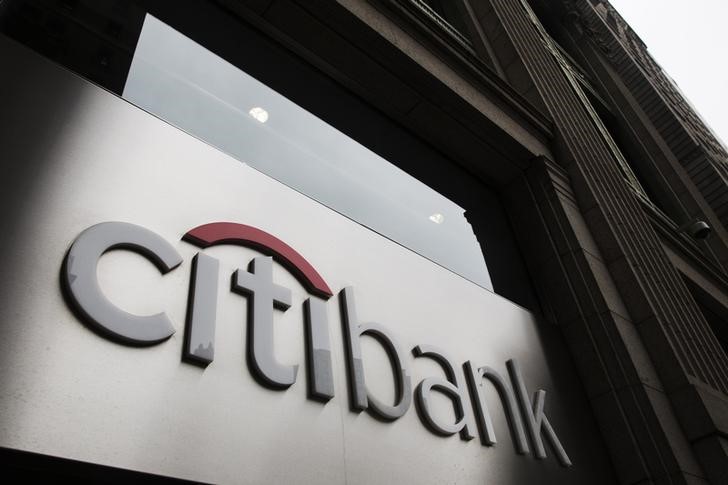(Bloomberg) -- A public slap from regulators, new limits on dealmaking and a surprise handover of the CEO reins all made for plenty to talk about on Citigroup Inc (NYSE:C).’s earnings call.
The recent swirl of news surrounding the bank has investors and analysts feeling anxious. It’s even led to a bit of deja vu, with the worry that Citigroup is in for a round of regulatory oversight similar to what rival Wells Fargo (NYSE:WFC) & Co. has spent years trying to work through, with a Federal Reserve-imposed asset cap that’s caused the company to miss out on at least $4 billion in profits.
The tension came to a head in a contentious conference call Tuesday between the bank’s top executives and analysts, who spent the almost two-hour event calling on outgoing Chief Executive Officer Mike Corbat to do everything from moving up his retirement date to giving a firm number for what the bank will need to spend to put regulators’ concerns to rest.
“Why isn’t Citigroup the new Wells Fargo in terms of the regulatory issues?” Erika Najarian, an analyst at Bank of America Corp (NYSE:BAC)., asked on the call, adding that asset-cap and the business-activity limitations for Wells Fargo came long after its own consent order. “How can you reassure your current investors and your prospective investors that you’re not going down the same laborious regulatory remediation route?”
Wells Fargo, in 2018, was banned from growing until it convinces regulators it has cleaned up its act. The limit came two years after the San Francisco-based bank settled allegations that it opened millions of accounts for customers without their permission. Corbat, for his part, sought to assure investors on Tuesday that his bank isn’t on a similar path.
Not Easy
There was “no widespread customer harm -- the company did not profit from the activities,” Corbat said. Still, he cautioned, “this won’t be a quick or easy fix.”
Citigroup last week said it entered into consent orders with the Federal Reserve and the Office of the Comptroller of the Currency, which also slapped the bank with a $400 million fine for failing to fix longtime deficiencies in its underlying infrastructure and controls.
The bank on Tuesday affirmed its commitment to spend $1 billion on improving those efforts this year. Still, executives didn’t present a clear picture of what those expenses may look like going forward.
“The remediation work will cost what it will cost,” Corbat said. “These are investments we need to make. In hindsight, we should have done this faster and prevented it from coming to this.”
Citigroup this year has already hired thousands of people to help it navigate the new years-long process of improving risk and controls, an effort it’s starting just as CEO-elect Jane Fraser is set to take the reins in February.
Timing Questioned
The timeline for new management also spurred questions by some analysts Tuesday -- with one asking when Fraser would first appear on an earnings conference call, and another wanting to know when the bank would set new targets for profitability to which executives could be held accountable.
“Speaking on behalf of investors and the people I speak with, there’s a collective sense of extreme disappointment,” Wells Fargo analyst Mike Mayo said on the call. “Why not step aside now and have a new CEO -- Jane Fraser -- take over as a way to demonstrate the increased sense of urgency?”
Corbat said a transition period was needed before Fraser takes over. In the meantime, she’s still leading the firm’s global consumer-banking operations, helping the firm craft its plans for returning workers to North American offices and embarking on the gap analysis required as part of the consent orders.
Plus, Corbat recalled his own experience when he took the reins of Citigroup in 2012, after the board ousted then-CEO Vikram Pandit following a series of setbacks with regulators.
“It’s important to the company that we have a real transition,” Corbat said. “As you recall, my transition was about five minutes.”
©2020 Bloomberg L.P.
